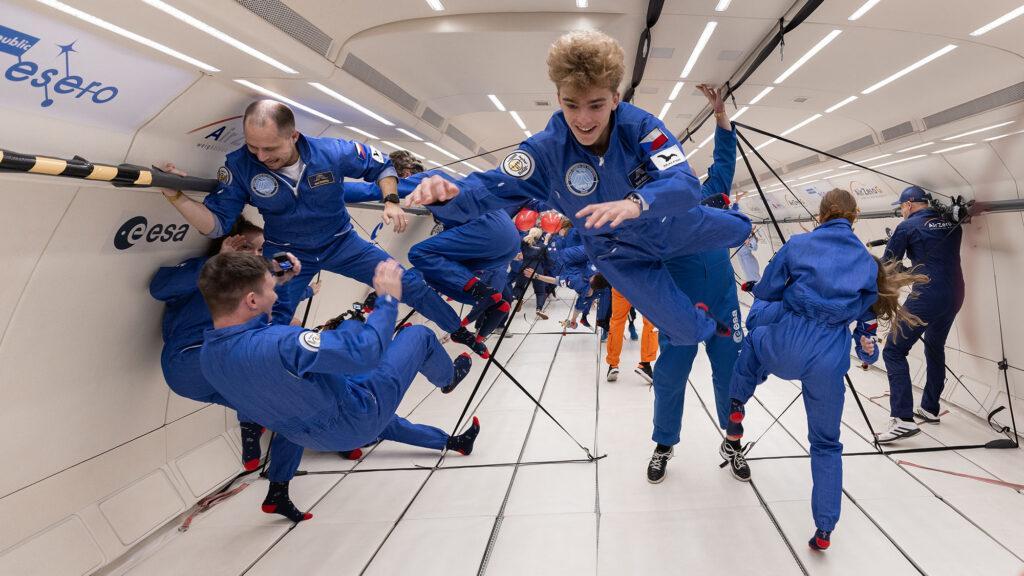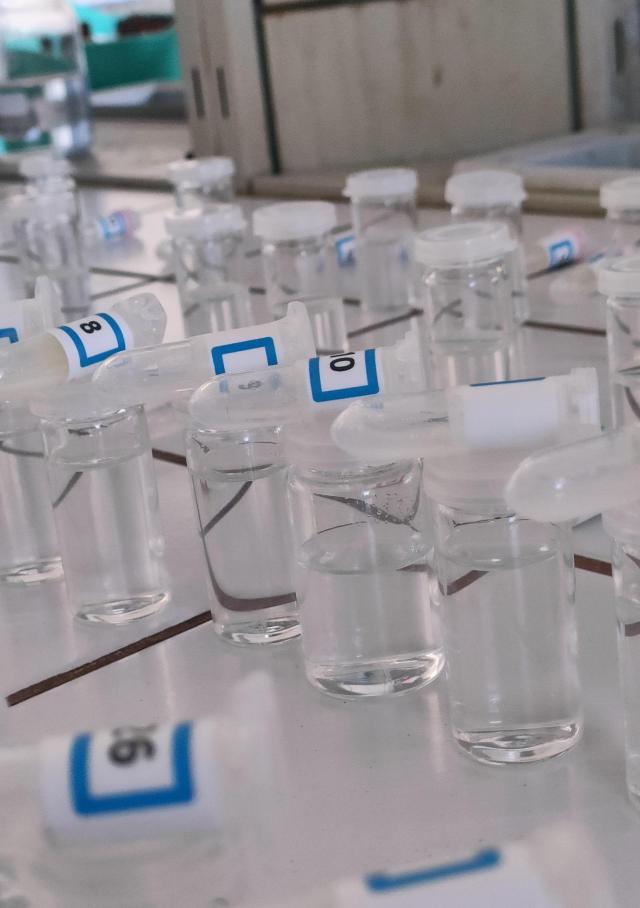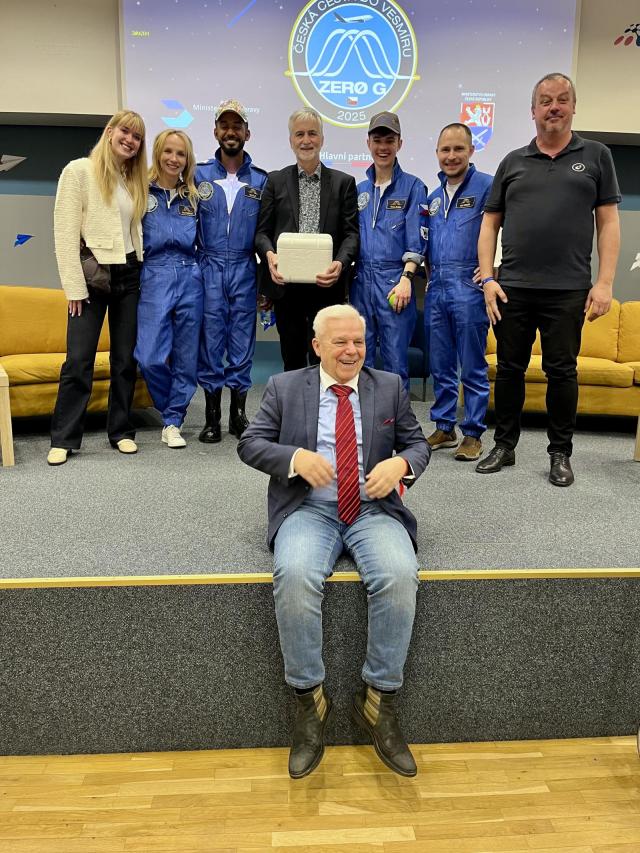Mission Zero-G: Resistance in microgravity was verified by an experiment involving BUT
What it’s like to float in microgravity was something more than twenty Czech secondary school students and several well-known personalities, including ESA reserve astronaut Aleš Svoboda, had the chance to experience at the end of March during the Zero-G mission. The event, organized by the Ministry of Transport as part of the Czech Journey to Space initiative, also included a unique experiment – a non-invasive collection of saliva samples from participants to examine the effects of stress in weightlessness. Researchers from the Faculty of Chemistry at Brno University of Technology (FCH BUT) are also involved in the analysis of the samples. The experiment is part of the ICARUS ARMOR NEXT GEN project, which is aiming to participate in a planned Czech space mission.

Unusual conditions, such as microgravity, can have adverse effects on the human body and induce stress. This is a natural physiological response, which can be revealed by so-called biomarkers – hormonal substances such as cortisol or adrenaline, whose levels can be detected, for example, in human saliva. “The mission was an opportunity to obtain a completely unique dataset for studying the effects of microgravity on teenage future astronauts during training. After collecting the samples on board the Zero-G flight, we are now moving on to analyze them to determine the acute levels of stress biomarkers,” explained Lukáš Nejdl from Lightly Technologies, a start-up originating from Mendel University.
For this purpose, the start-up developed an innovative spectrometer that, using controlled photolysis (a chemical reaction in which molecules of a compound are broken down by the absorption of light, editor’s note), can study saliva samples directly in a microgravity environment. The developers’ ambition is to get the device qualified for use in space and eventually integrate the miniaturized equipment into the research payload for the planned mission of Czech astronaut Aleš Svoboda to the International Space Station (ISS).
Spectroscopy at FCH helped identify stress-resilient participants of the Zero-G flight

Experts from FCH BUT, who have long-standing experience in spectroscopic analysis—particularly with a focus on fluorescence spectroscopy (typically uses UV light to excite fluorescence in order to identify and determine the concentration of studied compounds, editor’s note)—are simultaneously working with the collected saliva samples. Within the project, their task is to analyze the course of photolysis, identify the substances responsible for the spectroscopic changes in the samples during the photolytic reaction, and optimize the entire process from sampling and dosing to data processing, all with respect to the specific conditions of microgravity.
“From the Zero-G mission samples, we were able to determine the stress load level (Stress Score, editor’s note) for individual participants during the flight as well as their recovery rate (Recovery Score, editor’s note) after the stress event. We compared the results with data collected in each participant’s relaxed state, and the parameters identified individuals who are more resilient to stress and recover very quickly,” explained Filip Mravec from the Institute of Physical and Applied Chemistry at FCH BUT.
The goal is to participate in a space mission and continue stress research

If the project is successful in the selection process for Aleš Svoboda’s ISS mission, further testing is planned. “To validate stress indicators associated with space travel, we intend to use the centrifuge at the NASTAR Center in the USA, which enables precise simulation of G-force effects on the human body for various types of rocket launch vehicles. The tests would provide the company UptimAI, founded by graduates of the Institute of Aerospace Engineering at FME BUT, with crucial data for further development of a personalized digital model that monitors and evaluates astronauts’ cognitive performance. Interestingly, we’ve managed to negotiate the participation of two Czech students as observers—and potentially even testers—in some of the flight profiles,” Šálený added.
| Author | Mgr. Petr Kubíček |
|---|---|
| Published | |
| Link | https://www.vut.cz/en/but/f19528/d287247 |